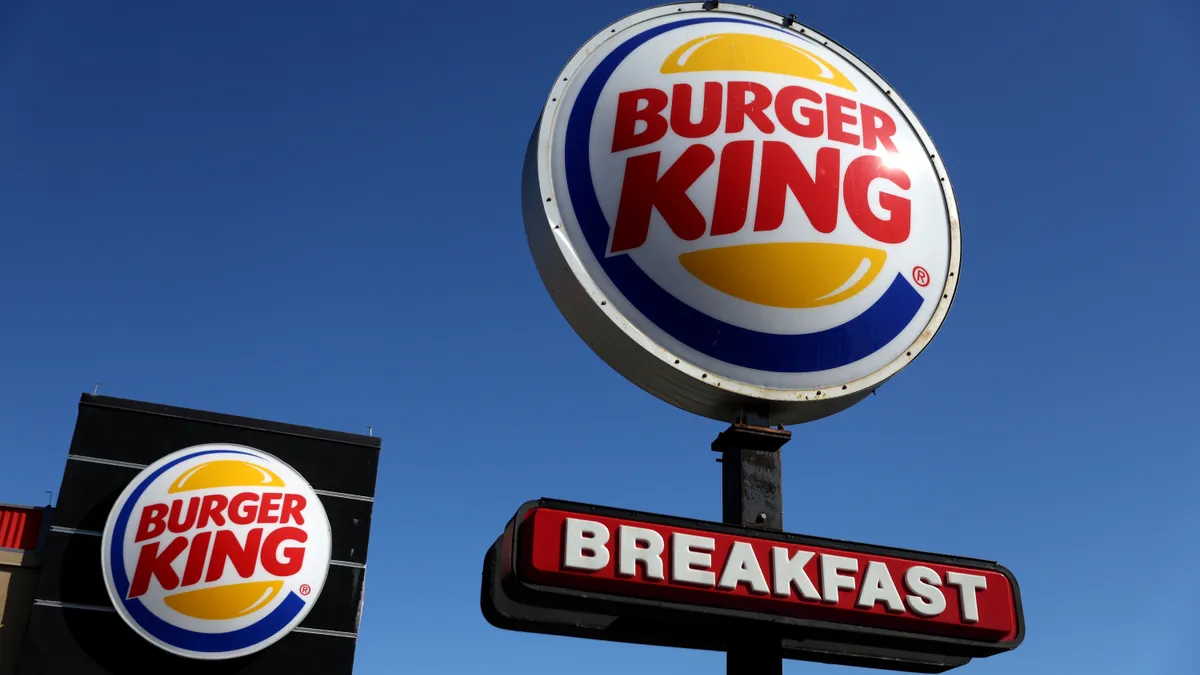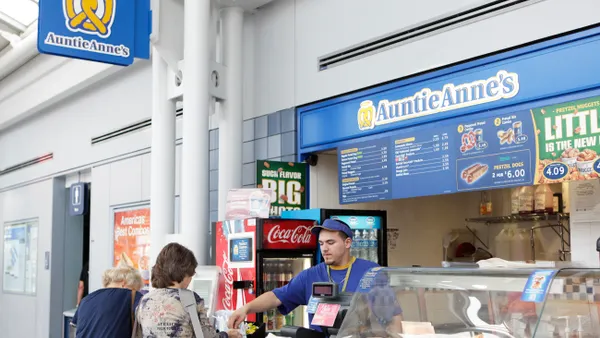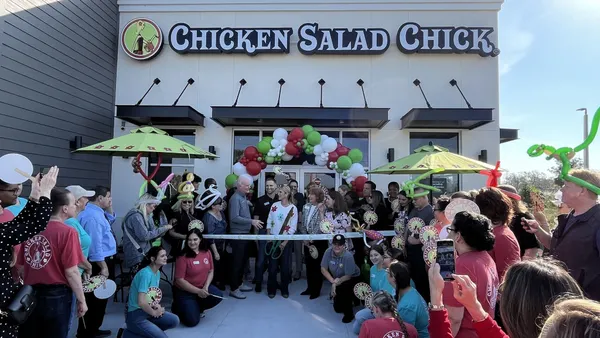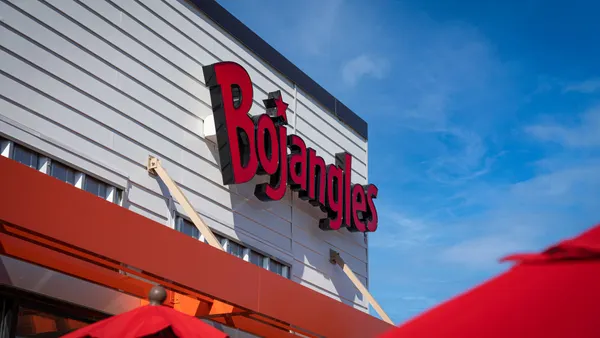Dive Brief:
- Consolidated Burger Holdings, a Burger King franchisee, filed for Chapter 11 bankruptcy protections on Monday, according to court documents filed with the U.S. Bankruptcy court for the Northern District of Florida.
- As of Monday, the operator has 57 Burger King locations across Florida and Southern Georgia, Joseph J. Luzinski, chief restructuring officer, said in a first day pleadings document. Of these locations, 53 are traditional restaurants and four are in Walmart stores.
- Consolidated Burger has faced several industry challenges which, combined with a highly leveraged balance sheet, depleted its liquidity over the last few years.
Dive Insight:
Consolidated Burger isn’t the only Burger King franchisee to declare bankruptcy since the pandemic. 2023 was a particularly bad year for BK operators with a handful of large franchisees filing for bankruptcy, including Meridian Restaurants Unlimited, Toms Kings and Premier Kings.
Much like these franchisees, Consolidated Burger faced profitability problems since the COVID-19 pandemic that resulted from significant foot traffic and revenue declines without a corresponding drop in rent costs, debt or other liabilities, Luzinski said.
“Additionally, recent increases in costs of shipping and food, decreased availability of labor, and inflation generally have exacerbated the Debtors’ cash flow issues,” Luzinski said. “As a result, although certain of the Restaurants have remained profitable, others have been operating at a loss, resulting in the Debtors’ inability to meet their obligations and achieve the financial metrics required under various agreements.”
Consolidated Burger was sued by Burger King in 2024, but it is unclear how a settlement reached in September impacted the operator’s path toward bankruptcy. On Feb. 20, Burger King declared Consolidated was in default of its franchise agreements. Burger King agreed to exercise forbearance of these defaults.
The company entered into Chapter 11 with $179,000 in unrestricted cash and cash equivalents, which is not enough to fund fixed costs. The operator is asking for $1.6 million in debtor-in-possession financing in addition to cash collateral to operate the business during the Chapter 11 sales process, according to Luzinski.
Consolidated Burger, which acquired its stores in 2018, has spent millions of dollars on upgrades, improvements and remodels. It installed new HVAC systems, roofs, parking lots and parking lot lighting upgrades across its restaurants.
In the next few years, management plans to complete additional remodels, upgrades and improvements, Luzinski said. It's unclear if these remodels are associated with Burger King’s current multi-million dollar renovation push, which was undertaken to boost traffic and sales.
Consolidated is considered a “top-tier Burger King franchisee, consistently receiving the highest marks based upon Burger King store metrics,” Luzinski said.
But that has not been enough to sustain profitable operations. For fiscal year 2023, the company had sales of $76.6 million and net operating losses of $6.3 million. Financials worsened last year, with sales declining to $67 million and losses growing to $12.5 million. The company said it has about $77.9 million in assets and $77.9 million in liabilities.














